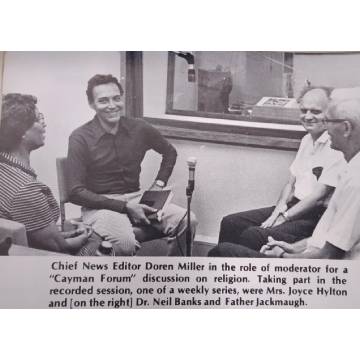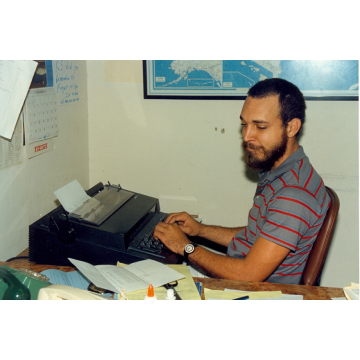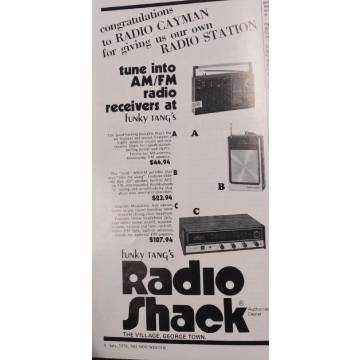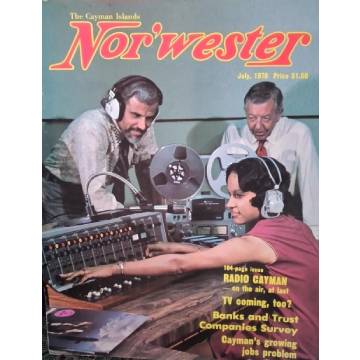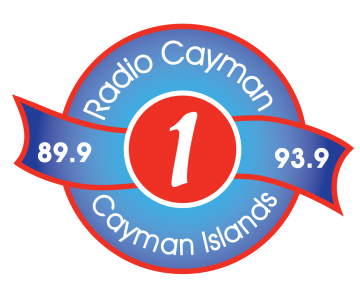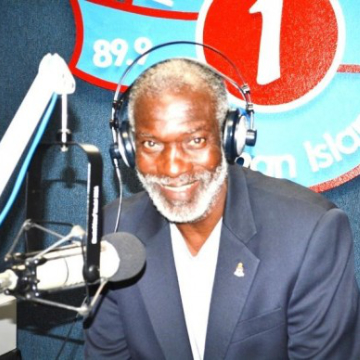News
CCMI brings the ocean directly to classrooms around the world through underwater live-stream lessons
Six years ago, the Central Caribbean Marine Institute (CCMI) launched Reefs Go Live, their innovative, flagship education programme that live-streams directly from underwater on the coral reefs in Little Cayman to students in classrooms around the world in real time. The 2023 season of Reefs Go live had more than 15,000 viewers turning in during the live broadcasts from around the globe. CCMI’s Reefs Go Live team hopes to expand the educational impact of the programme this year with four new episodes and supplemental teaching resources to help integrate the material into classroom lessons.
After a year of unprecedented stress on our coral reefs, this year’s episodes provide hope, focussing on the importance of research and investigation and highlight key work that CCMI is doing to understand and conserve coral reefs through cutting-edge scientific research and conservation at a time when it is needed most.
CCMI’s General Manager, Kate Holden, is looking forward to taking the classroom underwater on Little Cayman’s reefs for another year of Reefs Go Live:
“The Reefs Go Live programme is an extraordinary and engaging learning tool for students all around the world. We bring the stunning reefs of Little Cayman directly to students in their class. Global stresses are affecting our reefs, even though they have proven resilient over 25 years of monitoring. So it is even more important that ocean health is taught and taught well, to as many young people as possible.”
The first episode of 2024 will take place on Friday, 22nd March at 10 am Cayman time (UTC -5h). The episode, ‘Our Physical Ocean’, will cover the basics of physical oceanography that underpin life in the sea.
Reefs Go Live hosts will explain how life underwater differs from life on land, and how these factors drive what species and habitats exist underwater. Viewers of each episode will be able to ask questions of the diver and participate in polls through the online platform to make Reefs Go Live an interactive experience.
Additional episodes for this year will run at 10 am (UTC -5h) on the following dates:
Friday, 12th April: Researching on the Reef
Wednesday, 8th May: Reproduction on the Reef
Friday, 7th June (World Ocean Day): Corals in a Changing Climate: A Dive into the Future of Coral Reefs
Registration for Reefs Go Live is free and is only required once to receive access to all episodes: https://donate.reefresearch.org/rgl2024.
Reefs Go Live provides an opportunity for students from all over the world to engage with the stunning ocean environment in its most natural format. As coral reefs around the world face unprecedented pressure, generating increased engagement with these precious ecosystems creates an opportunity to promote marine sustainability in a positive and fun way.
Reefs Go Live utilises streaming technology with underwater video and audio equipment to enable real time broadcasting from Little Cayman’s stunning coral reefs. Little Cayman, a Mission Blue Hope Spot, hosts one of the healthiest reef ecosystems in the Caribbean, which shows promising signs of resiliency to climate change impacts. The broadcasts and education materials draw connections from CCMI’s current research conducted in Little Cayman to the national science curriculum and key ocean literacy principles, making CCMI’s work relevant and accessible to students and viewers of all ages, and emphasizing the relationship that we all have to coral reefs, no matter where we are.
Reefs Go Live is a free education programme that is made possible by the generosity of The Edmund F. and Virginia B. Ball Foundation. To register for the broadcasts and teaching resources, please visit:
https://reefresearch.org/what-we-do/education/reefs-go-live/


